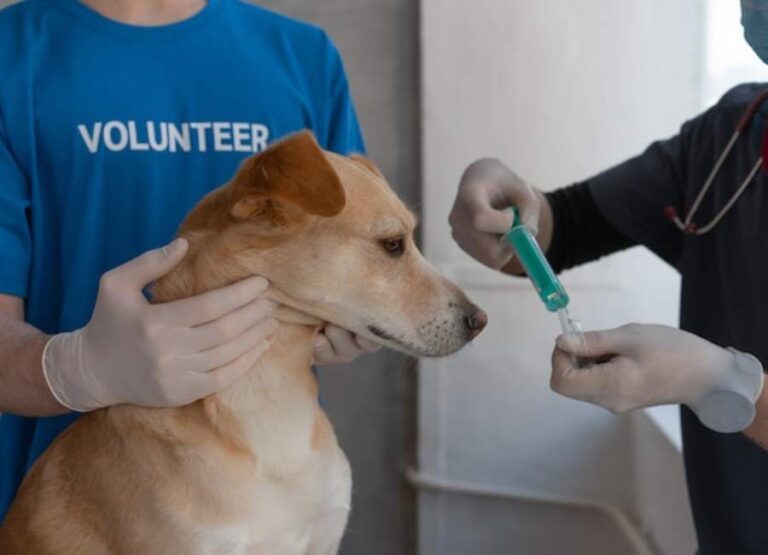Do Havanese Have Health Problems [Answered]
![Do Havanese Have Health Problems [Answered] Do Havanese Have Health Problems](https://petcreeks.com/wp-content/uploads/2023/02/Do-Havanese-Have-Health-Problems.jpg)
Have you ever considered adopting a Havanese dog? They are a wonderful breed of dog, known for their playful personalities and beautiful coat.
But do Havanese have health problems? In this blog post, we will discuss the health issues of the Havanese breed and how to prevent or manage them.
So, read on to learn more about the Havanese breed and how to ensure they stay healthy and happy!
Do Havanese Have Health Problems
Yes, Havanese dogs can be prone to a number of health problems, and some common health issues include Legg-Calve-Perthes disease, cataracts, liver shunt, patellar luxation, and hip dysplasia.
It is important to speak with your veterinarian about any potential health problems that may affect your Havanese.
Additionally, regular check-ups with your veterinarian and a healthy diet and exercise plan can help ensure your Havanese remains healthy and happy.
Let’s break it down further…
Havanese health problems
Here are some common Havanese health problems and tips:
Patellar luxation
The condition known as patellar luxation occurs when the kneecap slips out of place, making it difficult or impossible for the dog to walk.
It can be mild to severe, and in some circumstances, surgery may be necessary to address the problem.
Rest and physical therapy may be used to treat mild cases of patellar luxation, but surgery may be necessary to treat more serious cases.
Legg-Calve-Perthes disease
The hip joint is impacted by this degenerative condition, which causes pain and lameness.
It can be brought on by a lack of blood supply to the hip joint and is particularly prevalent in tiny dog breeds like the Havanese.
Depending on how severe the issue is, there are many different treatment options available, from medicine to surgery.
Physical therapy and activity moderation may also be used in the management of the condition.
Canine hip dysplasia
The hip joint is affected by this hereditary condition, which results in discomfort and disability.
It is brought on by the hip joint’s irregular growth, which can cause arthritis and other problems.
Physical therapy, activity modification, and medication to control pain and inflammation may all be used in the management of the illness.
Surgery can be needed in extreme circumstances to resolve the problem.
Allergies
Skin allergies, food allergies, and environmental allergies might be present in Havanese.
Itching, skin redness and inflammation, as well as stomach problems, are possible symptoms.
Allergic reactions can be controlled by recognizing and avoiding triggers.
Depending on the type of allergy and the intensity of the symptoms, treatment options might range from medication to dietary changes.
Heart disease
Havanese are susceptible to a number of heart conditions, including dilated cardiomyopathy and mitral valve dysfunction.
Breathing problems, heart failure, and other severe health problems might result from these disorders.
Heart disease can be slowed down in progression and the quality of life for the dog improved with early detection and treatment.
Depending on how severe the issue is, there are many different treatment options available, from medicine to surgery.
Progressive retinal atrophy (PRA)
Genetic conditions known as PRA impair the retina, the area of the eye that controls vision.
The retina deteriorates as the illness worsens, causing vision loss and finally blindness.
Although there is currently no treatment for PRA, genetic testing can help identify those who carry the condition and stop it from being passed on to future generations.
Genetic testing can assist in identifying disease carriers and stop the sickness from being passed on to subsequent generations.
The disease’s course can be slowed down and the dog’s vision can be preserved with early diagnosis and treatment.
Dental problems
Periodontal disease, which is brought on by the accumulation of plaque and germs on the teeth and gums, can be an issue for Havanese.
This may result in tooth decay, gum disease, or even tooth loss. There are a lot of benefits in dental care for a Havanese dog.
Dental problems can be avoided with routine dental care, which includes brushing your teeth and maintaining good oral hygiene.
A healthy, balanced diet can also aid to encourage good dental health.
Deafness
Congenital deafness, or being deaf from birth, is a prevalent medical condition among Cubans.
Genetics, illness, or exposure to loud noises are all potential causes. Dogs who are born deaf could need particular training and care.
Deaf dogs can enjoy happy and fulfilling lives with the aid of special training and care.
Owners can also prevent deafness by limiting their exposure to loud noises.
Liver Shunts
A liver shunt, often referred to as a portosystemic shunt, is a congenital disorder in which the liver is not properly nourished, causing toxins to accumulate in the bloodstream.
As blood skips the liver, which is in charge of filtering out toxins from the blood, the toxins build up in the bloodstream and cause a variety of symptoms.
In Havanese dogs, liver shunts can cause growth stunting, lethargy, vomiting, diarrhea, seizures, and confusion.
Blood tests, ultrasounds, and other diagnostic imaging examinations are frequently used to diagnose liver shunts.
Havanese dogs who have hepatic shunts may benefit from surgery to reroute blood flow, medication to treat symptoms, and dietary adjustments.
Learn more about what Havanese dogs usually die from.
How to minimize health problems in Havanese
Here are some tips on how to minimize health problems in Havanese dogs:
- Frequent vet visits: Bringing your Havanese to the vet for regular checkups will help identify any health issues early on and stop them from getting worse.
- Appropriate nutrition: Giving your Havanese a healthy, balanced diet will assist maintain their overall well-being and stave off conditions like obesity.
- Exercise: Exercise is essential for keeping Havanese dogs at a healthy weight and preventing obesity, which can cause various health issues.
- Dental care: As Havanese dogs are prone to tooth problems, it’s crucial to give them the right dental care, which includes frequent brushing and dental examinations.
- Vaccinations: Ensure that your Havanese has the necessary immunizations in order to stave off infections and diseases.
- Grooming: Frequent grooming, such as brushing and bathing, can keep your Havanese looking and feeling healthy and help avoid skin problems.
- Avoid overexposure to heat: Prevent overheating in Havanese dogs by keeping them out of hot situations for short periods of time. Havanese dogs are prone to overheating.
- Eye care: Cataracts and dry eyes are among the eye conditions that Havanese dogs are prone to. Maintaining clean eyes and getting regular eye exams can aid in early problem detection and prevention.
- Parasite control: Maintaining your Havanese dog’s freedom from parasites like fleas, ticks, and worms helps stop them from experiencing associated health issues.
- Environmental safety: Keep your Havanese dog away from potentially harmful things, such as cleaning products, chemicals, and plants.
- Socialization: Early socialization of your Havanese puppy can aid in preventing anxiety and aggression, which can result in other health issues.
- Spay/neuter: Consider having your Havanese dog spayed or neutered, which will not only prevent unintended pregnancies but also lower the chance of certain health conditions like reproductive malignancies.
- Mental stimulation: Giving your Havanese dog mental stimulation will enhance their general well-being and stop behavioral problems that can develop from boredom and a lack of stimulation.
Signs Of A sick Havanese dog
Common signs of illness in Havanese dogs include vomiting, diarrhea, loss of appetite, lethargy, persistent coughing, difficulty breathing, and changes in behavior.
Additionally, they may also show signs of skin irritation or infection, excessive scratching and licking, and pale gums.
If your Havanese displays any of these symptoms, it is important to take them to the vet for a thorough examination.
How to care for a sick Havanese dog
Caring for a sick Havanese dog can be a challenging task. It is important to take them to the vet for a thorough examination as soon as any signs of illness are noticed.
Additionally, it is important to provide them with a quiet, comfortable environment to rest, and to ensure they are kept hydrated.
It is also important to provide them with a healthy diet, and to make sure they are getting the necessary exercise and stimulation.
Finally, it is important to provide them with the necessary medication or supplements prescribed by the vet.
Conclusion
To conclude, Havanese are a beautiful breed of dog that can make great companions.
Although they do have some health issues, these can be managed and prevented with proper care and nutrition.
By providing a healthy diet, regular exercise, and plenty of love, you can ensure that your Havanese will stay happy and healthy for many years to come.






